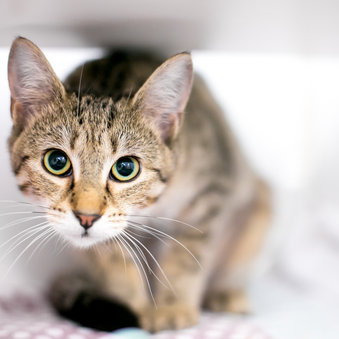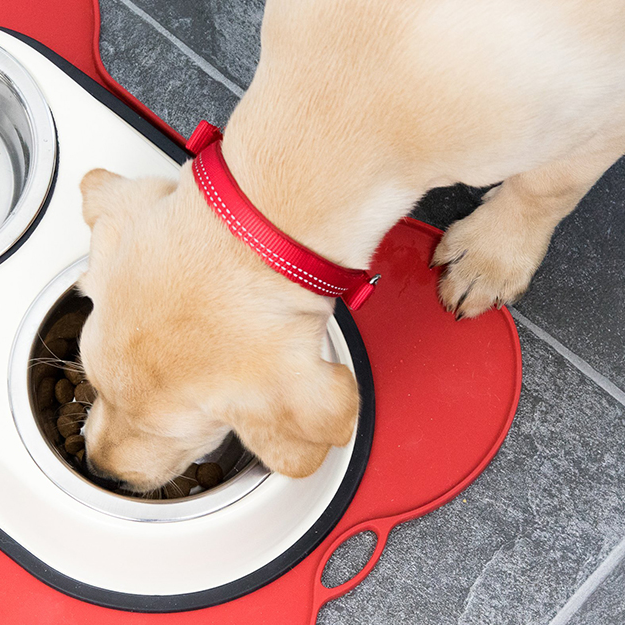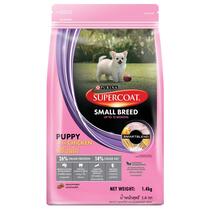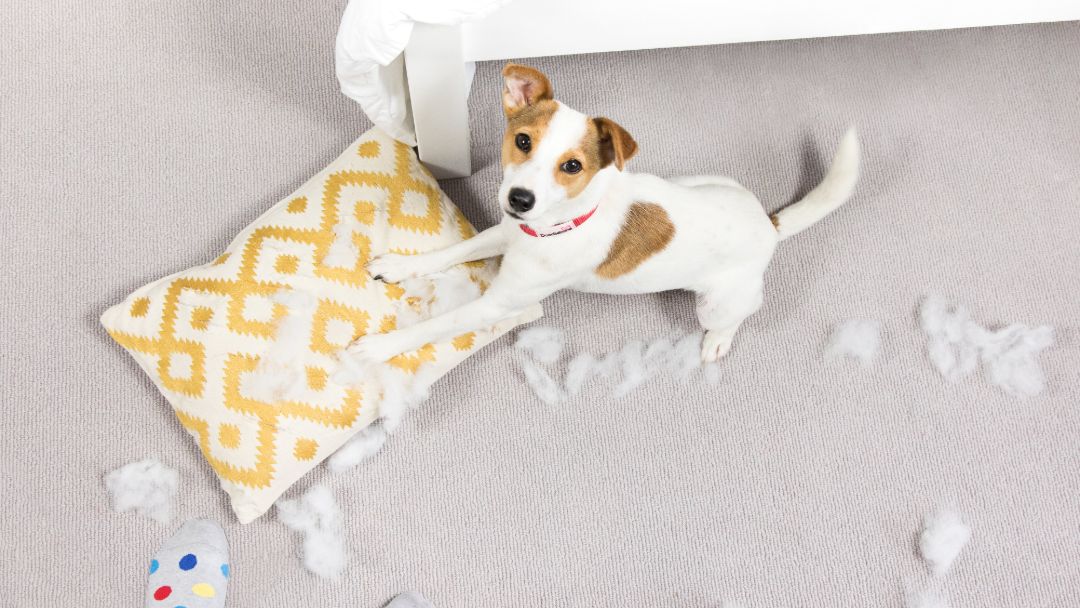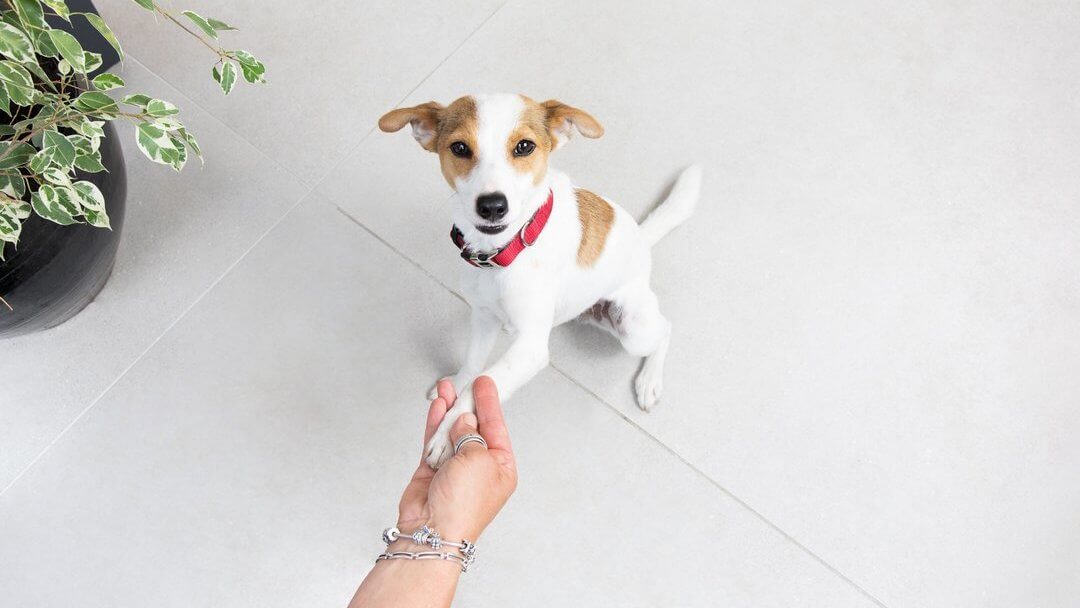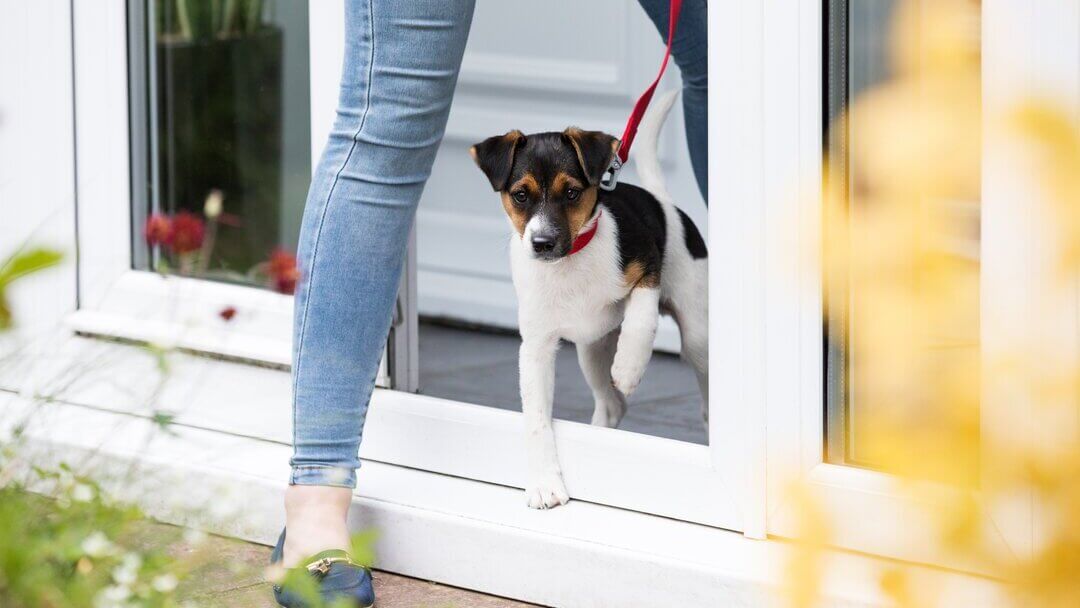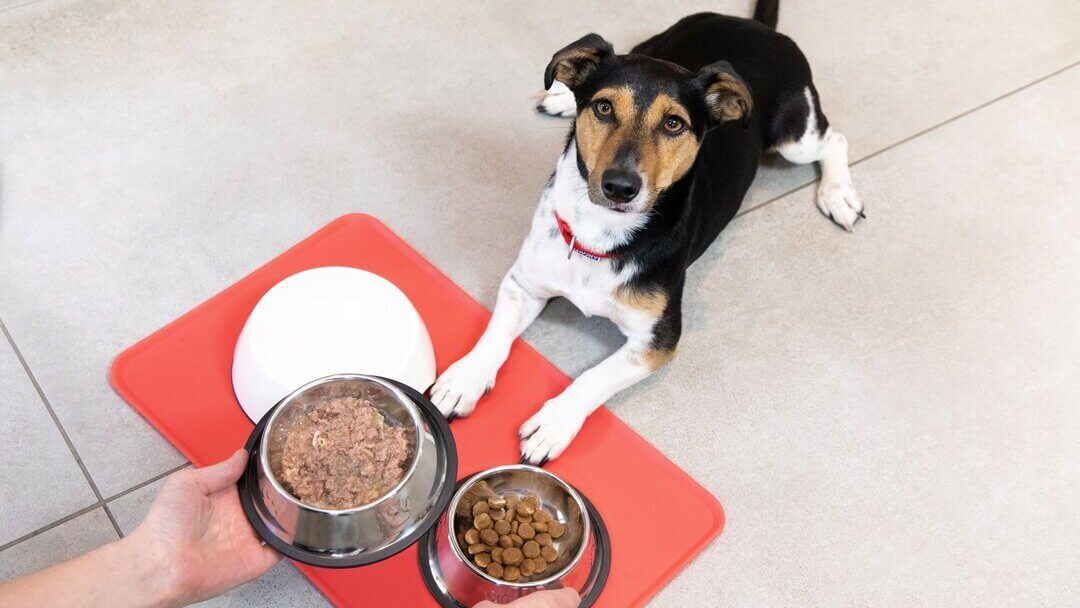
All puppies go through a teething phase. Puppy teething is when they outgrow their puppy teeth, which are replaced by more permanent, adult teeth.
This happens at a different age depending on their breed and size. But the effects of teething are the same: an irritable puppy and damage to your house! In this article, we explore why puppy teething can be a destructive phase and talk you through five steps that can make the whole process easier on both you and your pup.
When do puppies start teething?
All mammals have to go through a teething stage; this includes both you and your puppy. Unlike humans, puppies begin to start teething at around 16 weeks of age. This means their milk teeth will begin to fall out and new adult teeth will begin to poke through.
Once the teething process begins do not be surprised if your dog is chewing everything is sight – this kind of behaviour is completely normal. We recommend you provide your dog with plenty of chew toys throughout this period and praise them for using them, to save your furniture.
When do puppies lose their teeth?
It usually takes around four months for puppies to go through the whole process of teething. By the age of 7-8 months your puppy should have grown all of their adult teeth, if they’re not all there yet try not to worry too much.
However, if it gets to 9 months and there are still some adult teeth missing, we advise you contact your vet. They will be able to access your dog’s mouth and find out if their mouth needs any dental work.
Why can puppy teething be so destructive?
Puppy teething means discomfort (and sometimes pain) for your pup: their gums may become red and swollen as and their teeth are falling out while new ones erupt. Who wouldn’t be uncomfortable?
Your pup handles puppy teething by chewing. Chewing helps ease some of the irritation on their gums (a bit like scratching an itch).
Plus, for a puppy their mouth is a bit like your hand; it is what they use to explore and understand the world. Couple that with their natural curiosity and they may start to chew anything and everything in your house.
But just because it is nature’s way, it doesn’t mean you have to survive with chewed-up furniture and missing shoes. Keep on reading to find out how to puppy-proof your home from puppy teething.
Creating a puppy-proof home when your puppy is teething
Distract your puppy with chew toys
One of the best ways to keep a puppy away from your valuable items is to buy toys specifically designed for puppy teething. Chew toys are extremely popular and readily available in the market.
Puppies also grow attached to their toys at this age (even if they destroy it with their teeth) so a favourite chew toy can become your greatest ally in keeping your furniture untouched.
There are a range of chew toys you can invest in during the puppy teething phase. We would recommend buying several so that your puppy can move from one to the other, depending on their mood. The softness and chew-ability of the chew toy is important. When your pup has just started teething, they may need something softer on their milk teeth, whereas they would need something more durable and challenging once their jaw has developed and they have more power to their bite.
Cold chews are great for puppy teething
You can also buy chew toys that can be frozen. A Chilly Bone is a particular favourite among dog owners. This toy comes in the shape of a bone and is filled with a gel that freezes pretty quickly once placed in the freezer. It stays frozen for quite a while as well, so your pup can enjoy its cold goodness.
These freezeable toys are particularly attractive because they are soothing for your pup’s gums. This can be a special blessing for those pups who are having a rough time with the puppy teething process. Make sure you do not give your pup ice cubes though, as they may be too rough on their teeth. Frozen carrots are a good alternative to ice cubes, as they are softer on teeth.
Remove objects you don’t want them to chew
A simple but effective strategy for getting a puppy-proof house is to train your puppy to only chew suitable items. Providing them with chew toys is a great step in this direction, of course, but all pups fall off the wagon sometimes.
If you catch them with the remote control in their mouth or chewing enthusiastically on a cushion, simple say ‘no’ in a firm tone of voice. Then remove the item from their mouth and replace it with a chew toy that is more suitable.
If you are firm when teaching your puppy this, they will soon learn that some items are off limits. Remember, your puppy needs to chew when they are teething—they are not simply misbehaving. So, make sure you replace what they are chewing with something else.
Hide your personal belongings
When exploring the world, puppies naturally gravitate to anything that smells like you. After all, you are their best friend; you are the one thing they know for certain in this world. It is no wonder, then, that they want to explore your shoes, your socks, your phone—anything that has your scent on it!
Make sure you keep these items where they are not reachable. Put your shoes away in a shoe rack that closes so that your puppy cannot access a shoe and chew on it. If you have any personal items they particularly like to gnaw on, put them on high shelves that your puppy cannot reach. It’s a simple but effective way to puppy proof your house—keep your pup away from temptation!
Safety first is important when your puppy is teething
Puppy teething can also be a dangerous phase. Puppies do not always gravitate towards cushions or shoes; sometimes they want to chew power cables or swallow a button. While playing, pups can seriously harm themselves.
Creating a puppy-proof house is much like planning a home safe for a child. Make sure there are child-locks on all the drawers (especially in the kitchen) so that your puppy cannot jump up and accidentally open them.
You can also buy dog gates. These gates are like baby gates—they are not very high but they keep your pup out of the dangerous areas or areas where they may cause a lot of damage. No one wants their pup eating through their collection of books or their work for the next day!
While puppy teething can be a potentially destructive phase in life, there are ways to make sure it does not ruin your house. The measures above will also make the process easier on your pup. They will know what is or is not off limits and they will be able to exercise their excess energy (and natural instincts) in a safe and soothing way. Once your puppy stops teething, you will have an intact home and a well-trained pup!
Is your full-grown dog excessively chewing on things? Read our guide and find out what to do, next.

